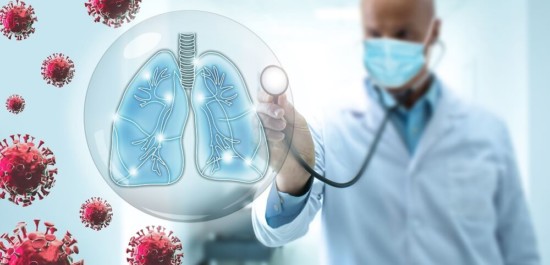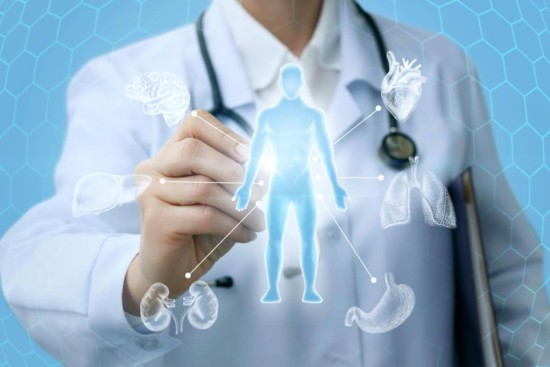Calls for Ukraine
Calls for Europe
Calls for USA

The world continues to fight the COVID-19 pandemic. Despite the imposed quarantine restrictions and the beginning of vaccination, in some countries the number of infected continues to grow steadily. Ukraine and Russia are also among them.
In October 2021, Russia had the highest mortality level from coronavirus disease since 2020. The government attributes this to the insufficient rate of vaccination: only 49 million people are vaccinated in the country, which is about a third of humanity. The situation is no less difficult in Ukraine. A record quantity of cases were also recorded here, and the vaccination rate is slightly more than 16%. Sharp increases in infections are also reported by Bulgaria, Moldova, Latvia and Lithuania.
The situation is impaired by the fact that SARS-CoV-2 is constantly mutating. The new strain, named Delta, is twice as infectious as previous versions of the virus. Scientists associate its high contagiousness with the capability to multiply rapidly in the body. Plenty of research showed that individuals with delta infection are at a higher risk of severe illness.
An investigation by the University of Toronto and published in the Canadian Medical Association Journal (CMAJ) found that Delta strain increases:
In addition, there is more and more evidence that the coronavirus infection does not pass without a trace. Most patients need subsequent health recovery. At the same time, post covid rehabilitation is necessary not only for hospitalized people, but also for those who have had a mild phase of pathology.
The COVID-19 has serious consequences for public health. Self-isolation is the only prevention method nowadays. Even vaccination does not protect 100% from infection and is aimed primarily at reducing the severity of the disease and preventing death.
Rehabilitation after COVID-19 is principally significant in case of prolonged illness. The US CDC has coined a new term — post-covid syndrome. It describes a wide range of recurring or ongoing health problems that people may face 4 weeks or more after getting a new variant of coronavirus. Even those patients in whom the infection was asymptomatic can suffer from post-covid syndrome.

The SARS-CoV-2 virus can enter red blood cells and destroy hemoglobin, which can no longer carry red blood cells from the lungs to organs and tissues. In severe cases, this leads to the development of acute respiratory distress syndrome and multiple organ failure. The accumulation of degradation products in the lung tissue is displayed on CT in the form of «ground glass», and occurs even in asymptomatic patients.
Doctors believe that with COVID-19, the pulmonary system suffers the most. Inflammation in the lungs often leads to fibrosis, especially if the patient is on mechanical ventilation. Fibrosis is an abnormal proliferation of connective tissue (scarring) caused by an immune response to inflammation. Scarring leads to poor lung function and symptoms such as:
This condition can develop as a long-term consequence of a viral infection, months after recovery. Therefore, the diagnosis of post-covid syndrome is of great importance.
According to research from the American College of Cardiology, hospitalized patients experienced the following complications:
Moreover, patients undergoing intensive care had a higher risk of myocardial damage and other complications (> 20%).
It is known that coronaviruses have previously affected the central nervous system. The new SARS-CoV-2 virus can enter the brain. Scientists suggest two possible paths. The first is through the blood, and the second is through the ethmoid plate located next to the olfactory bulb. Patients with COVID-19 have reported neurological symptoms such as:
There is an opinion that the ability of the virus to enter the brain is accompanied by an increased risk of developing neurodegenerative diseases (Alzheimer’s disease, Parkinson’s disease). In addition, patients with COVID-19 who at the time of infection were already suffering from neurological disorders, there is a worsening of the condition.
According to the studies, the COVID-19 disease is accompanied not only by an inflammatory reaction, but also by microvascular thrombosis. Many affected patients have been diagnosed with disseminated intravascular coagulation syndrome (DIC). This is a condition in which blood clots form in the vessels due to increased blood clotting. The inflammatory syndrome that arises against this background can affect the microvascular bed of the brain and other vital organs — the lungs, kidneys, heart, gastrointestinal tract.
The study, published in the journal Lancet Psychiatry, has shown that one in three individuals with COVID-19 have neurological and psychological problems, even long after recovery. After examining the medical history of more than 200 000 individuals with COVID-19, scientists found:
Psychological problems were especially pronounced in hospitalized patients, but also occurred in people with mild to moderate severity of the disease.
Experts in the fields of psychiatry, neurology and neuroscience say such results are not surprising. Many viruses, including SARS-CoV-2, do cause an inflammatory reaction in the brain, triggering the development of mental problems such as depression, anxiety and PTSD.

Most people who have had a coronavirus infection do not even assume about the hidden consequences that it has on the body. They may not appear immediately, but several weeks or even months after recovery. Therefore, many foreign clinics offer such a service as a check-up after COVID-19. This is a comprehensive examination that allows doctors to timely detect complications of coronavirus infection and prescribe appropriate treatment.
The check-up can be done at any time. However, there are certain guidelines:
Even if the coronavirus infection was mild without pneumonia, after a while, patients may experience such health problems as fatigue, weakness, memory impairment, shortness of breath. A comprehensive examination will help find the causes of these symptoms and prescribe treatment.
Currently, many foreign clinics offer post-covid diagnostics services. However, getting into them today is not easy due to quarantine restrictions. The most loyal conditions for patients from the countries of the former CIS are currently created in Turkey. You can come here without a visa if you have a PCR test, an antibody test, a certificate of a recent illness or a certificate of complete vaccination.
Turkish clinics have the most modern diagnostic equipment. Here you can undergo a complete examination of the body in order to identify possible respiratory, cardiovascular and neurological consequences of the previous coronavirus infection. Based on the results obtained, the doctor will draw up a treatment plan that takes into account the personal needs of the patient.
COVID-19 affects the body in different ways. The most pronounced pathologies occur in seriously ill patients. However, there is now growing evidence that the virus can cause complications, even in people who have asymptomatic disease. Post-covid rehabilitation is required for all patients who, after recovery, have:
Timely diagnostic examination and postcovid rehabilitation can identify and eliminate the consequences of coronavirus infection at an early stage.
Currently in Ukraine there is an opportunity to undergo a comprehensive post covid rehabilitation using innovative biotechnologies. Treatment helps to eliminate complications from the respiratory, cardiovascular, nervous, digestive and musculoskeletal systems in patients after COVID-19.
Thanks to biotechnology therapy in patients after coronavirus, damaged body tissues (in the lungs and heart) are restored. The work of the central nervous system is normalized. The main goal of the program is to prevent the development of further health problems and to return patients to a full life as soon as possible.
The treatment procedure is practically painless and well tolerated by humanity. It does not require long-term hospitalization, surgery, or any other major medical intervention. The therapeutic program is developed individually, taking into account the results of diagnostics and the characteristics of the patient’s current state of health. The treatment takes only three days:
The health recovery program after COVID-19 using the latest biotechnology can reduce or completely eliminate the complications of the disease, and also helps to improve the functioning of various body systems.
From the lungs:
From the side of the heart:
From the nervous system:
From the psycho-emotional sphere:
From the side of the blood vessels:
In people who have recovered from COVID-19, increased blood clotting may persist for a long time, which raises the probability of pulmonary embolism, deep vein thrombosis, and myocardial infarction. Rehabilitation after coronavirus infection helps restore blood composition and normal vascular lumen.
The innovative post-coronavirus rehabilitation program is designed specifically to identify and eliminate the long-term consequences of the disease in a timely manner. It helps restore health, improve mood and productivity, and get back to normal life as quickly as possible.
If you want to undergo post covid rehabilitation, leave a request on the MedTour website. The coordinating doctor will help you choose the best clinics and recommend the most suitable doctors.
Please rate the work of MedTour
